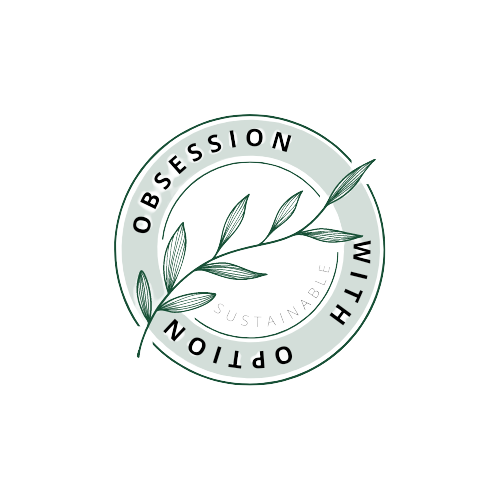Are you looking for natural ways to boost your immune system? Look no further! Discover how you can strengthen your body’s defenses with the help of specific foods and vitamins. In this article, we will explore a variety of immune-boosting options that you can easily incorporate into your daily routine. From nutrient-rich foods to essential vitamins, we’ve got you covered. Say goodbye to frequent illnesses and hello to a healthier, stronger immune system. Let’s get started on this journey towards a vibrant and resilient you!
Boost Your Immune System Naturally with these Foods and Vitamins

Vitamins for Immune System Support
When it comes to supporting your immune system, vitamins play a crucial role. They provide essential nutrients that strengthen your body’s natural defenses. Here are some key vitamins that can boost your immune system:
Vitamin C
Vitamin C is perhaps the most well-known vitamin for immune system support. It helps stimulate the production of white blood cells, which are essential for fighting off infections. Foods that are rich in vitamin C include citrus fruits like oranges, grapefruits, and lemons. Other excellent sources of vitamin C include red bell peppers, kiwi, and strawberries.
Vitamin D
Vitamin D plays a vital role in supporting immune health. Your body produces vitamin D when your skin is exposed to sunlight. However, it can also be obtained through certain foods. Fatty fish like salmon and mackerel are excellent sources of vitamin D. For those who follow a vegetarian or vegan diet, mushrooms are a great source. Additionally, fortified dairy products and plant-based milks are also good sources of vitamin D.
Vitamin A
Another crucial vitamin for immune system support is vitamin A. It helps regulate the immune system and maintains the health of the cells in your skin and mucous membranes, which act as barriers against pathogens. Foods rich in vitamin A include sweet potatoes, carrots, spinach, and kale. Apricots, cantaloupe, and mango are also excellent sources.
Vitamin E
Vitamin E is a powerful antioxidant that helps protect the body’s cells from damage caused by free radicals. It is known to enhance the immune response and boost overall immune function. Some good sources of vitamin E include almonds, sunflower seeds, and spinach.
Vitamin B6
Vitamin B6 is essential for supporting biochemical reactions in the immune system. It helps in the production of antibodies and white blood cells. Foods rich in vitamin B6 include poultry, fish, chickpeas, and bananas.
Vitamin B12
Vitamin B12 plays a crucial role in maintaining a healthy immune system. It helps in the formation of red blood cells and supports the function of white blood cells. Animal sources such as meat, poultry, fish, and dairy products are some of the best sources of vitamin B12.
Folate
Folate, also known as vitamin B9, is important for immune health as it aids in the production of new cells in the body. Green leafy vegetables like spinach, asparagus, and broccoli are excellent sources of folate. Legumes and avocados also contain good amounts of this nutrient.
Iron
Iron is vital for the production of hemoglobin, a protein that carries oxygen to the body’s cells. It also supports immune system function. Good sources of iron include red meat, poultry, fish, beans, and spinach.
Zinc
Zinc is an essential mineral that plays a crucial role in immune system function. It helps in the development and activation of immune cells. Foods rich in zinc include shellfish, legumes, seeds, and nuts. Dairy products, eggs, whole grains, and red meat are also good sources.
Selenium
Selenium is a trace mineral that acts as an antioxidant in the body. It aids in the production of antibodies and helps protect cells from damage caused by free radicals. Brazil nuts, seafood, and organ meats are excellent sources of selenium.
Foods Rich in Vitamin C
Vitamin C is a water-soluble vitamin that is known for its immune-boosting properties. It aids in the production of white blood cells, which are essential for fighting off infections. Here are some foods that are excellent sources of vitamin C:
Citrus Fruits
Citrus fruits like oranges, grapefruits, lemons, and limes are well-known for their high vitamin C content. These fruits not only provide an abundance of vitamin C but also offer a refreshing and tangy taste.
Red Bell Peppers
Red bell peppers contain more vitamin C than most citrus fruits. They are also rich in antioxidants and provide a great crunch to salads, stir-fries, and other dishes.
Kiwi
Kiwi fruit is a small but mighty source of vitamin C. It also offers a good amount of dietary fiber and other essential nutrients. Enjoy it as a snack or add it to smoothies for a tropical twist.
Strawberries
Strawberries are not only delicious but also a fantastic source of vitamin C. Enjoy them on their own, add them to salads or yogurt, or blend them into a refreshing smoothie.
Papaya
Papaya is a tropical fruit that is rich in vitamin C and other beneficial enzymes. Its unique flavor makes it a tasty addition to fruit salads and smoothies.
Guava
Guava is a tropical fruit with a sweet and tangy taste. It is packed with vitamin C and offers a good amount of dietary fiber. Enjoy guava on its own or use it to make delicious jams and jellies.
Oranges
Oranges are classic vitamin C powerhouses. They are not only refreshing but also versatile. Enjoy them as a snack, squeeze them into juice, or use their zest in baking and cooking.
Grapefruit
Grapefruit is another citrus fruit that is rich in vitamin C. It offers a tart and tangy flavor that can be enjoyed on its own or added to salads and desserts.
Mango
Mango is a tropical fruit that is not only delicious but also packed with vitamin C. Its sweet and juicy flesh makes it a favorite among many. Enjoy it on its own or add it to smoothies, salsas, or desserts.
Pineapple
Pineapple is a tropical fruit that provides a good dose of vitamin C. It has a unique flavor that adds a tropical twist to both sweet and savory dishes. Enjoy it fresh or grilled for an extra burst of flavor.
By incorporating these vitamin C-rich foods into your diet, you can give your immune system a natural boost.
Foods Rich in Vitamin D
Vitamin D is an essential nutrient that plays a crucial role in supporting immune health. While our bodies can produce vitamin D when exposed to sunlight, certain foods are also excellent sources. Here are some foods that are rich in vitamin D:
Fatty Fish
Fatty fish like salmon, mackerel, and trout are some of the best dietary sources of vitamin D. They not only provide vitamin D but also offer a healthy dose of omega-3 fatty acids, which have anti-inflammatory properties.
Mushrooms
Mushrooms are unique in that they can naturally produce vitamin D when exposed to sunlight, similar to human skin. Including mushrooms in your diet, such as shiitake or portobello mushrooms, can provide you with some vitamin D.
Egg Yolks
Egg yolks are another source of vitamin D. They are versatile and can be enjoyed in various dishes like omelets, salads, or homemade mayonnaise.
Fortified Dairy Products
Many dairy products, such as milk, cheese, and yogurt, are fortified with vitamin D. These fortified options provide an additional source of vitamin D for those who may not get enough sunlight exposure.
Fortified Plant-Based Milks
Plant-based milks like soy milk, almond milk, and oat milk are often fortified with vitamin D to provide a vegan-friendly option for those looking to increase their vitamin D intake.
Sunlight Exposure
Sunlight is one of the best sources of vitamin D. Spending some time outdoors and exposing your skin to sunlight, especially during the summer months, can help your body produce vitamin D naturally.
Supplements
For those who have limited sun exposure or struggle to obtain enough vitamin D through their diet alone, supplements can be an effective way to ensure adequate intake. Consult with your healthcare provider to determine if supplementation is necessary for you.
By including these foods rich in vitamin D in your diet and getting enough sunlight exposure, you can support your immune health and overall well-being.
Foods Rich in Vitamin A
Vitamin A is an essential nutrient that supports immune system function and helps maintain the health of your skin and mucous membranes. Here are some foods that are rich in vitamin A:
Sweet Potatoes
Sweet potatoes are not only delicious but also a great source of vitamin A. They are versatile and can be used in a variety of dishes like roasted, mashed, or even in desserts.
Carrots
Carrots are known for their high vitamin A content. They are crunchy, sweet, and can be enjoyed raw, roasted, or added to soups, stews, and stir-fries.
Spinach
Spinach is a leafy green vegetable that is packed with vitamins and minerals, including vitamin A. Enjoy it in salads, sautéed as a side dish, or blended into smoothies for a nutrient boost.
Kale
Kale is another leafy green vegetable that offers an abundance of vitamin A. It can be enjoyed raw in salads or sautéed as a side dish.
Butternut Squash
Butternut squash not only provides a hearty and delicious addition to meals but also offers a good amount of vitamin A. Roast it, steam it, or use it in soups and stews for a nutritious and comforting meal.
Red Bell Peppers
Red bell peppers not only provide a vibrant pop of color to dishes but also contain vitamin A. They can be enjoyed raw in salads, stuffed, or added to stir-fries for a burst of flavor.
Apricots
Apricots are a delicious fruit that is rich in vitamin A. They can be enjoyed fresh or dried and make a great addition to both sweet and savory dishes.
Cantaloupe
Cantaloupe is a refreshing fruit that provides a good amount of vitamin A. Enjoy it on its own, in fruit salads, or blended into smoothies for a tropical treat.
Mango
Mangoes are not only sweet and juicy but also a fantastic source of vitamin A. Enjoy them on their own, in smoothies, or use them in both sweet and savory recipes.
Tuna
Tuna is a fish that is not only rich in protein and omega-3 fatty acids but also offers a good amount of vitamin A. Enjoy it grilled, baked, or in salads and sandwiches.
By incorporating these vitamin A-rich foods into your diet, you can provide your immune system with the necessary nutrients to function optimally.
Foods Rich in Zinc
Zinc is a mineral that plays a crucial role in supporting immune system function. It helps in the development and activation of immune cells. Here are some foods that are rich in zinc:
Shellfish
Shellfish, such as oysters, crab, and lobster, are excellent sources of zinc. They not only provide a healthy dose of this essential mineral but also offer other important nutrients.
Legumes
Legumes like chickpeas, lentils, and beans are not only rich in fiber and protein but also provide a good amount of zinc. They are versatile and can be used in a variety of dishes, such as soups, stews, and salads.
Seeds
Seeds like pumpkin seeds, hemp seeds, and sesame seeds are packed with zinc. Enjoy them as a snack, sprinkled on salads, or blended into smoothies for an added nutrient boost.
Nuts
Nuts, such as cashews, almonds, and peanuts, are not only delicious but also a good source of zinc. Enjoy them as a snack, use them in baking, or sprinkle them on top of salads and stir-fries.
Dairy Products
Dairy products like milk, cheese, and yogurt are known for their calcium content, but they also provide a decent amount of zinc. They make convenient and nutritious sources of this essential mineral.
Eggs
Eggs are a versatile and nutrient-dense food that provides various essential nutrients, including zinc. Enjoy them boiled, scrambled, or as an ingredient in both sweet and savory dishes.
Whole Grains
Whole grains like quinoa, brown rice, and oats not only offer fiber and other important nutrients but also contain zinc. Enjoy them as a side dish, in salads, or as a base for hearty bowls.
Red Meat
Red meat, such as beef and lamb, is known for its high zinc content. It is not only a rich source of this essential mineral but also provides ample amounts of protein and other nutrients.

Poultry
Poultry, such as chicken and turkey, is another good source of zinc. Enjoy them grilled, roasted, or added to various dishes for a delicious and nutritious meal.
Dark Chocolate
Dark chocolate, when consumed in moderation, can be a surprising source of zinc. Opt for dark chocolate with a higher percentage of cacao to reap the most benefits.
By including these zinc-rich foods in your diet, you can support your immune system and overall well-being.
Foods Rich in Probiotics
Probiotics are beneficial bacteria that provide numerous health benefits, including supporting immune health. They help regulate your gut microbiota and enhance your body’s natural defenses. Here are some foods that are rich in probiotics:
Yogurt
Yogurt is a well-known source of probiotics. Look for yogurts that contain live or active cultures for the most beneficial bacteria. Enjoy yogurt as a snack, in smoothies, or use it as a creamy base in various dishes.
Kefir
Kefir is a fermented milk drink that contains a variety of beneficial bacteria and yeasts. It is rich in probiotics and can be enjoyed on its own or used as a base for smoothies and shakes.
Sauerkraut
Sauerkraut is fermented cabbage that is rich in probiotics. It adds a tangy and crunchy element to dishes and can be enjoyed as a side dish or as a topping for salads and sandwiches.
Kimchi
Kimchi is a traditional Korean dish made from fermented vegetables, usually cabbage and radishes. It is not only a delicious and spicy addition to meals but also offers a good amount of probiotics.
Miso
Miso is a traditional Japanese seasoning made from fermented soybeans. It is commonly used in soups, marinades, and sauces to add a depth of flavor and provide probiotic benefits.
Tempeh
Tempeh is a fermented soy product that is commonly used as a meat substitute. It is rich in probiotics and can be incorporated into various dishes like stir-fries, salads, and sandwiches.
Pickles
Pickles are cucumbers that have been pickled in a brine solution. The fermentation process involved in making pickles results in the growth of beneficial bacteria. Enjoy pickles on their own or as a tangy addition to sandwiches and salads.
Kombucha
Kombucha is a fermented tea beverage that is rich in probiotics. It offers a fizzy and tangy taste and can be enjoyed on its own or mixed with other ingredients to create refreshing mocktails.
Traditional Buttermilk
Traditional buttermilk, often used in baking, is different from the cultured buttermilk commonly found in stores. It is a byproduct of churning butter and is rich in probiotics. Use it in recipes to add moisture and a tangy flavor.
Soft Cheeses
Soft cheeses like cottage cheese and certain types of cheese made from unpasteurized milk contain beneficial bacteria. Enjoy these cheeses as a spread, in salads, or incorporate them into various recipes.
By incorporating these probiotic-rich foods into your diet, you can support the health of your gut microbiota and enhance your immune system.
Antioxidant-Rich Foods
Antioxidants play a crucial role in protecting the body’s cells from damage caused by free radicals. By including antioxidant-rich foods in your diet, you can support immune health and overall well-being. Here are some foods that are rich in antioxidants:
Berries
Berries like blueberries, strawberries, raspberries, and blackberries are bursting with antioxidants. Enjoy them as a snack, in smoothies, or as a topping for yogurt and cereals.
Dark Chocolate
Dark chocolate is not only delicious but also a rich source of antioxidants. Opt for dark chocolate with a higher percentage of cacao to reap the most benefits. Enjoy it in moderation as a treat.
Pecans
Pecans are a nut rich in antioxidants, particularly a compound called ellagic acid. Enjoy them as a snack, sprinkle them on salads, or incorporate them into baked goods and desserts.
Artichokes
Artichokes are not only a delicious addition to meals but also a good source of antioxidants. Steam or roast them to help preserve their beneficial compounds.
Goji Berries
Goji berries are a small fruit that packs a punch when it comes to antioxidants. Add them to smoothies, sprinkle them on top of cereals or salads, or enjoy them on their own.
Red Cabbage
Red cabbage is not only colorful but also offers a good amount of antioxidants. Use it in salads, slaws, stir-fries, or as a crunchy topping for sandwiches and tacos.
Beans
Beans, such as black beans, kidney beans, and pinto beans, are rich in antioxidants, fiber, and other important nutrients. Enjoy them in soups, salads, or as a side dish.
Beets
Beets are root vegetables that provide a vibrant color and a good amount of antioxidants. Roast, steam, or blend them into smoothies or soups for a burst of flavor and nutrients.
Green Tea
Green tea is rich in antioxidants known as catechins. Enjoy it as a hot or cold beverage, or use it as a base for smoothies and iced teas.
Turmeric
Turmeric is a spice known for its vibrant color and antioxidant properties. Incorporate it into your cooking by adding it to curries, rice dishes, and roasted vegetables.
By including these antioxidant-rich foods in your diet, you can support your immune health and protect your body’s cells from damage caused by free radicals.
Herbs and Spices
Herbs and spices not only add flavor to your meals but also offer various health benefits. Many herbs and spices possess antioxidant, anti-inflammatory, and immune-boosting properties. Here are some herbs and spices that can support immune health:

Garlic
Garlic not only adds a delicious flavor to dishes but also offers immune-boosting properties. It contains compounds that stimulate the immune system and provide antimicrobial benefits.
Ginger
Ginger is a spice with powerful anti-inflammatory properties. It can help reduce inflammation in the body and supports immune health. Enjoy it in teas, stir-fries, or even as a flavoring in baked goods.
Turmeric
Turmeric is a spice that contains a compound called curcumin, which offers potent anti-inflammatory and antioxidant benefits. Incorporate turmeric into curries, rice dishes, and roasted vegetables for a vibrant and flavorful boost.
Cinnamon
Cinnamon not only adds warmth and sweetness to dishes but also offers anti-inflammatory and antioxidant properties. Sprinkle it on oatmeal, add it to baked goods, or stir it into your morning coffee or tea.
Oregano
Oregano is an herb that is rich in antioxidants and has antimicrobial properties. It can be used as a flavorful addition to various dishes, including pasta sauces, salads, and roasted vegetables.
Rosemary
Rosemary is an aromatic herb that contains antioxidants and exhibits antimicrobial properties. It adds a fragrant flavor to roasted meats, potatoes, and vegetables.
Thyme
Thyme is an herb that has antimicrobial properties and is packed with antioxidants. It can be used in a variety of dishes, including soups, stews, and roasted meats and vegetables.
Basil
Basil is an herb that contains antioxidants and offers antimicrobial properties. It can be used fresh or dried in a variety of dishes, including salads, pasta sauces, and homemade pesto.
Cayenne Pepper
Cayenne pepper contains a compound called capsaicin, which offers various health benefits, including boosting metabolism and reducing inflammation. Add a dash of cayenne pepper to spice up your dishes.
Black Pepper
Black pepper not only adds flavor but also enhances the absorption of nutrients in the body. Sprinkle it on your dishes or use it in marinades and dressings.
By incorporating these herbs and spices into your cooking, you can add flavor to your meals while supporting your immune system and overall health.
Powerful Immune-Boosting Superfoods
Superfoods are nutrient-dense foods that offer an array of health benefits. They are packed with vitamins, minerals, antioxidants, and other essential nutrients that support immune health. Here are some powerful immune-boosting superfoods:
Blueberries
Blueberries are not only delicious but also rich in antioxidants, fiber, and vitamins C and K. Enjoy them as a snack, in smoothies, or added to your favorite baked goods.
Spinach
Spinach is a leafy green vegetable that is packed with vitamins A, C, and K, as well as folate and iron. Enjoy it in salads, sautéed as a side dish, or blended into smoothies for an extra nutrient boost.
Salmon
Salmon is a fatty fish that is not only rich in omega-3 fatty acids but also provides vitamins D and B12. Enjoy it grilled, baked, or poached for a nutritious and delicious meal.
Greek Yogurt
Greek yogurt is not only a great source of protein but also contains probiotics that support gut health and immune function. Choose plain Greek yogurt and add your own fruits, nuts, and seeds for a nutritious snack or breakfast.
Quinoa
Quinoa is a gluten-free grain that is packed with protein, fiber, vitamins, and minerals. It is a versatile ingredient that can be used in a variety of dishes, including salads, bowls, and side dishes.
Almonds
Almonds are a nutrient-dense nut that provides healthy fats, protein, fiber, vitamin E, and other essential nutrients. Enjoy them as a snack, sprinkle them on salads, or use them as a base for homemade nut butter.
Green Tea
Green tea is not only rich in antioxidants but also contains compounds that support immune health. Enjoy it as a hot or cold beverage, or use it as a base for smoothies and iced teas.
Broccoli
Broccoli is a cruciferous vegetable that is rich in vitamins C and K, as well as fiber and other important nutrients. Steam, roast, or sauté it to enjoy its numerous health benefits.
Chia Seeds
Chia seeds are small seeds that are packed with fiber, omega-3 fatty acids, and antioxidants. They can be added to smoothies, oatmeal, or used as an egg substitute in baking.
Dark Chocolate
Dark chocolate, when consumed in moderation, can provide antioxidants and other health benefits. Opt for dark chocolate with a higher percentage of cacao to reap the most benefits.
By incorporating these immune-boosting superfoods into your diet, you can support your immune system and overall well-being.
Lifestyle Factors that Support Immune Health
In addition to incorporating immune-boosting foods and vitamins into your diet, certain lifestyle factors can also support immune health. Here are some lifestyle factors to consider:
Adequate Sleep
Getting enough sleep is essential for overall health, including immune function. Aim for 7-9 hours of quality sleep each night to support your immune system.
Regular Exercise
Exercise not only supports overall health but also enhances immune function. Engage in regular physical activity, such as walking, jogging, or strength training, to support your immune system.
Stress Management
Chronic stress can weaken the immune system. Practice stress management techniques like meditation, deep breathing exercises, or engaging in hobbies to reduce stress levels.
Maintaining a Healthy Weight
Maintaining a healthy weight is important for overall health, including immune function. Incorporate a balanced diet and regular exercise to support a healthy weight.
Hydration
Staying hydrated is crucial for overall health, as it helps flush out toxins and supports immune function. Aim to drink plenty of water throughout the day to stay hydrated.
Quit Smoking
Smoking weakens the immune system and increases the risk of various health conditions. Quit smoking to support your immune health and overall well-being.
Moderate Alcohol Consumption
Excessive alcohol consumption can compromise the immune system. Limit alcohol intake to moderate levels to support immune function.
Good Hygiene Practices
Practicing good hygiene, such as washing your hands regularly, can help reduce the spread of infections and support immune health.
Avoiding Excessive Antibiotic Use
Antibiotics are essential for treating bacterial infections but should be used appropriately. Avoid excessive antibiotic use to prevent antibiotic resistance and support immune health.
Avoiding Excessive Stress
Chronic stress can weaken the immune system. Practice stress management techniques and engage in activities that help you relax and unwind.
By incorporating these lifestyle factors into your daily routine, you can support your immune health and overall well-being.
In conclusion, boosting your immune system naturally is achievable by incorporating various foods and vitamins into your diet, as well as adopting healthy lifestyle factors. Vitamins such as vitamin C, vitamin D, vitamin A, vitamin E, and zinc can play a crucial role in supporting immune health. Foods rich in these vitamins, along with probiotics, antioxidants, and immune-boosting superfoods, can provide the necessary nutrients to strengthen your body’s natural defenses. Additionally, incorporating lifestyle factors like adequate sleep, regular exercise, stress management, and maintaining a healthy weight can further support immune health. By making these changes, you can help ensure that your immune system is functioning optimally and ready to fight off any potential threats to your well-being.













